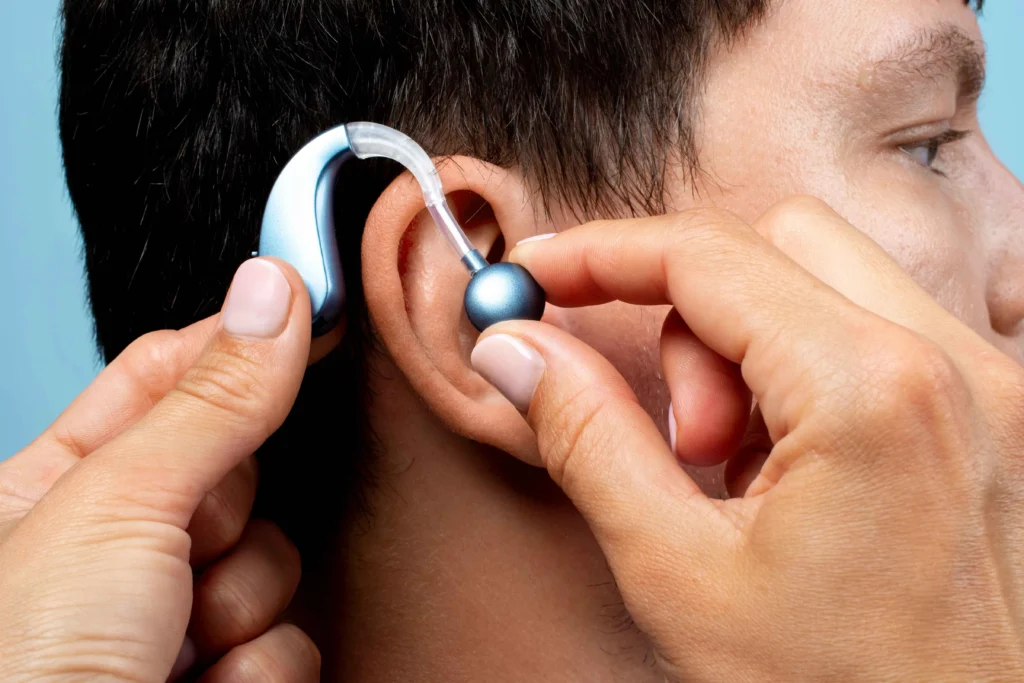It is important to know that tinnitus can impact every person differently. Generally speaking, you may find that you hear a ringing, whooshing or buzzing sound that’s not really there. If you have a persistent ringing in your ears, then this can be annoying, not to mention that it can be in the form of a low-pitched roar or a squeal. In some people, it occurs constantly, in others it comes and goes. So, what does it sound like?
Common Descriptions of Tinnitus
Some common descriptions of tinnitus include the sound of crickets, wind, squeals, dripping water, grinding steel or even a running engine. Some even say that it sounds like a motorboat. It is vital to know that tinnitus is in fact a symptom and that it is linked to a lot of medical conditions.
Some medications can even cause you to trigger tinnitus. It is strongly linked to both hearing loss and loud noise exposure. If a medical cause cannot be uncovered, then tinnitus may be classed as being a chronic disease. In a lot of cases, there isn’t a cure either.
Constant Ear Ringing
If you have occasional bouts of noise that only really last for a couple of seconds, then this is considered to be transient noise. It’s something that a lot of people get now and again. If you have chronic tinnitus however then this means that you have it for longer than five minutes at a time and that you experience it twice or more in a week.
You may find that you have tinnitus in one ear or both. It may also come and go. Tinnitus can also get loud to the point where it stops you from being able to concentrate, and in some instances, it can even mask a lot of natural sounds. It is most common amongst adults, and it is predominantly seen in those who have hearing loss already.
Pulse-Like Ear Ringing
Do you sometimes feel as though you can hear your pulse going through your head? Maybe you feel as though you can hear your blood rushing. Either way, this is called pulsatile tinnitus. If you are experiencing this, then you need to try and make sure that you get evaluated by an audiologist. It may be that you have an underlying issue, that could lead to a stroke or cancer. Some of the less serious causes include anemia or even a vitamin deficiency.
Tinnitus and the Emotional Symptoms
Having constant ringing is not pleasant at all. Sometimes you may find it hard to fall asleep or you may find it impossible to concentrate when you are at work. This can be very annoying and if you add it to lack of sleep, then you may find that you have a lot of anxiety. Anxiety is common in those who experience tinnitus as it gets in the way of them experiencing new situations.
A lot of people who struggle with tinnitus often make the connection to stress. You may find that you experience things such as depression as well. If you undergo tinnitus treatment however, then you will soon find that everything becomes much more manageable.
Monitoring your Ringing
Having a good grasp of what sounds you may be able to hear and even how you hear them can be really helpful when you got to your audiologist. If you can be sure to keep a symptom diary, at least for a few weeks, then this will help you out more than you realize.
If you have a tinnitus evaluation from an audiologist, then they can begin to ask you a series of questions so that they can get a good idea of your symptoms. They may want to ask you if the sound ever changes so they can pinpoint your hearing loss.
Finding an audiologist near you has never been easier as well. If you do want to visit someone so you can get a good idea if you have this condition or not, then the best thing that you can do is give Adirondack Audiology a quick call. If you want to do this, then you simply need to call us today at +1 (802) 922-9545.
When you do, you can then count on them to give you the support you need to feel confident in your treatment while also helping you to gain a higher level of understanding regarding your condition, which is always a good thing if you are learning about it for the very first time.









